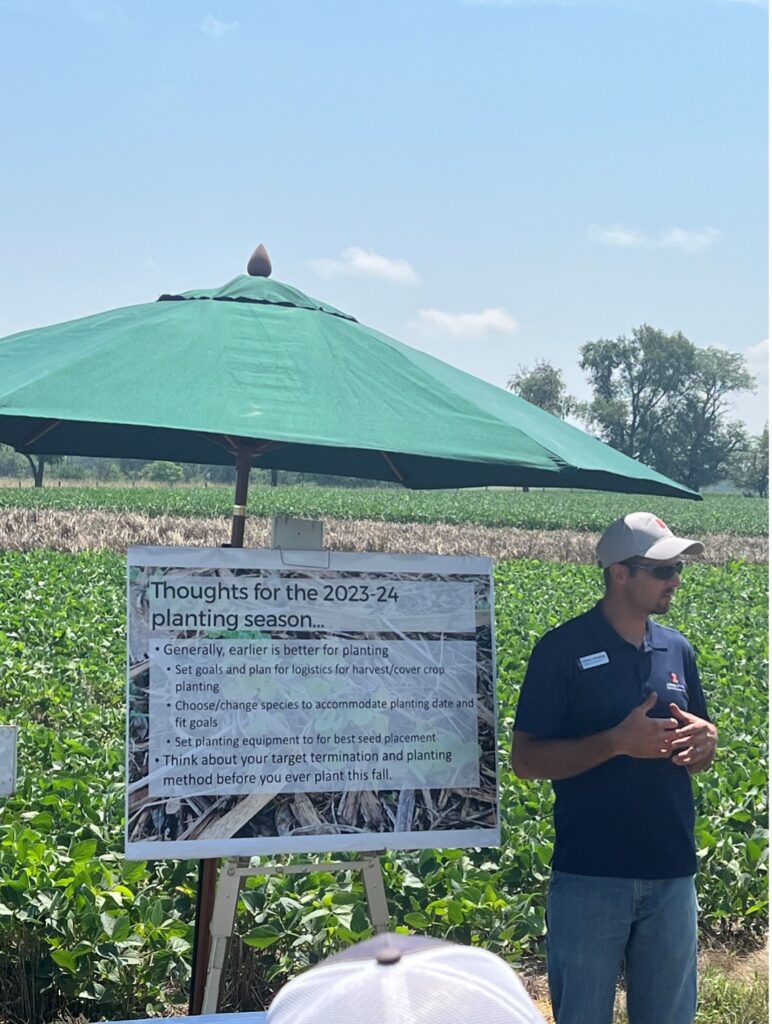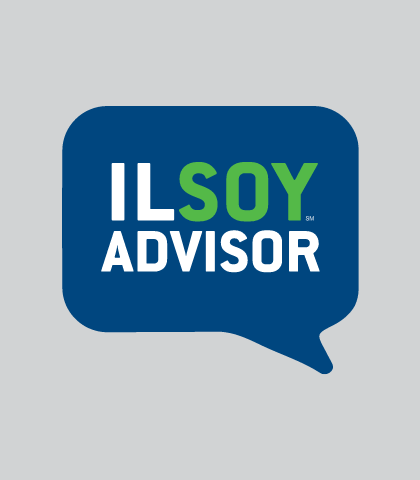University of Illinois Extension Commercial Ag Educator, Nathan Johanning, presented at various field days throughout Illinois this summer sharing developments from a research study about cover crop planting dates. Read some takeaways about his presentation below.
Why is Planting Date Important for Cover Crops?
- To optimize successful establishment
- To get optimal fall growth
- To realize the desired performance of the cover crop
- Varies depending on the cover crop species and sometimes variety
- More planting information can be found on the Midwest Cover Crops Council – midwestcovercrops.org
Data from the Research
- A trial at the Belleville site compares planting date in cereal rye at 60 lb/acre. One plot was planted October 4, 2022, and the other is November 10, 2022. You can visually see more biomass from the October 4th planting date.
- A trial at the Belleville site also compares balansa clover and crimson clover as cover crops and it shows biomass resulting from different planting dates. The earlier planting dates were more successful in stand establishment and spring biomass production when compared to the later planting dates.
- Preliminary findings support the fact that earlier planting dates would yield more spring biomass. In some cases, earlier planting dates with lower seeding rates can provide comparable biomass to the higher seeding rates planted later.
Things to Keep in Mind for the 2023-2024 cover crop planting season
- Generally, earlier planting provides better performance most cover crops. Even a few days or a week earlier can lead to significant differences in performance.
- Set goals and plan for logistics at harvest and cover crop planting
- Set planting equipment for best seed placement for seed size and type
- Determine your target termination and planting method before you plant this fall
- Choose and/or change species to accommodate planting date and to fit goals
This research is funded by the Illinois Soybean Association checkoff program – click here to learn more. View Johanning’s full presentation here.









 and then
and then